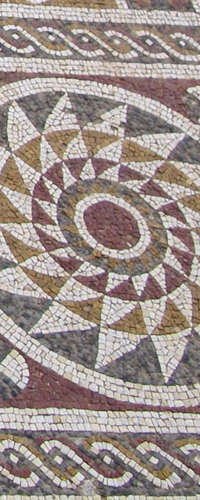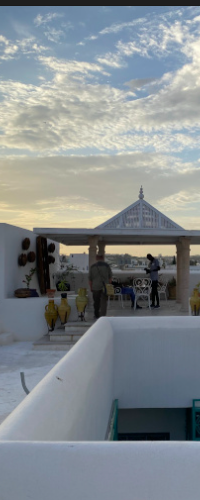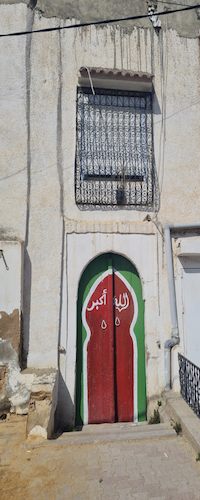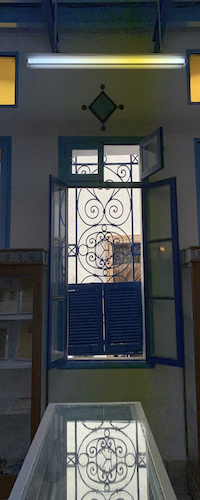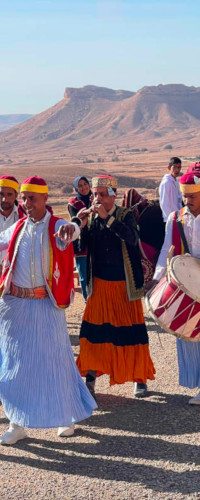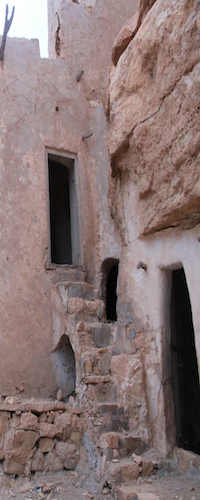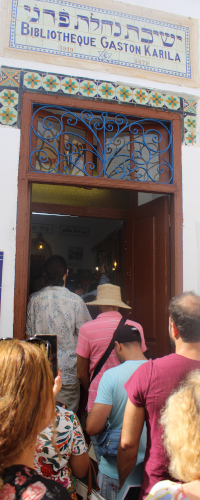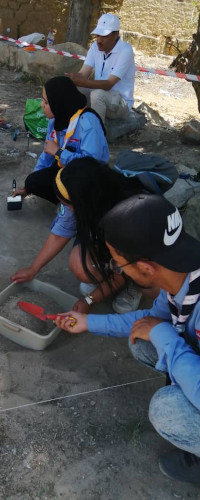
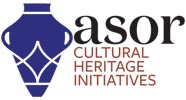
TUNISIA UPDATES
ASOR CHI Symposium | Cultural Heritage Initiatives in Africa Today
On April 11-13, ASOR CHI hosted a three-day symposium, Cultural Heritages Initiatives in Africa Today, which highlighted the work of local heritage professionals, academics, and civil society organizations to protect, preserve, and promote cultural heritage in North Africa and the Sahel. ASOR welcomes you to view the symposium recordings.
CHI Update: UNESCO Announces Djerba as a Cultural Heritage Site
ASOR CHI wishes to congratulate our partners in Tunisia for the island of Djerba’s inclusion in UNESCO’s list of world heritage sites. Djerba, located in southern Tunisia, is famous for its religious diversity and natural beauty, which includes numerous Carthaginian and Roman archaeological remains, mosques, churches, and synagogues.
In celebration of this occasion, Safouane Tlili (ASOR Implementing Partner) has curated a selection of his photographs demonstrating the religious and ethnic pluralism enjoyed on the island.
CHI Update: First Visit to a Djerbian Jewish Home—Lasting Impressions
ASOR partner Safouane Tlili describes how his understanding of the Djerbian (Tunisia) Jewish community expanded through cooperative GIS documentation work. In May 2023, Tlili had his first chance to participate in the pilgrimage associated with the Lag B’Omer Festival that is held annually at the Ghriba Synagogue. The next day, Tlili joined an ASOR delegation and partners from all over Tunisia to visit a Jewish family in their home—the first opportunity in Tlili’s life to do so. These types of encounters seldom happen in Djerba, which Tlili describes in detail in this article.
CHI Update: Spring 2023 Tunisian Implementation Tour
In celebration of ASOR’s continued collaboration with partners in North Africa, ASOR organized a Tunisian implementation tour from April 28 – May 10, 2023. Many Tunisian partners who have played prominent roles in the project’s success met with ASOR leaders and CHI staff. The tour also provided an excellent opportunity for in-person training our new partners from Burkina Faso and Niger, building on virtual training that they received before the trip.
UPDATE: Celebrating Black History Month—Documentation and Outreach Event Commemorating the End of Slavery in Tunisia
On January 23, 1846, Tunisia became the first Arab and Muslim country to ban slavery. On the 177th anniversary of this event, a commemorative day was jointly organized by several ASOR partners in Tunisia: The Heritage Laboratory of The University of Manouba, The Manouba Association for Monuments and Culture, and The Association Carthagina. This article recounts the event and closes off fittingly the celebrations of Black History Month. This collaborative project, supported by an anonymous donor, has provided the opportunity to train members from different minority groups in the Maghreb with a wide number of documentation tools.
UPDATE: Documentation of Jewish Cultural Heritage in Nabeul, Tunisia
Recent actions by local associations and civil society in Nabeul, Tunisia, celebrate the city’s Jewish heritage. Yesmine Abide outlines concrete efforts to preserve and showcase this patrimony.
UPDATE: ASOR Initiatives to Safeguard Cultural Heritage in North Africa
Last year, ASOR Cultural Heritage Initiatives (ASOR CHI) received a major grant from an anonymous donor to document, preserve, and promote the cultural heritage of ethnic and religious minorities in Tunisia and Morocco by focusing on the rich traditions of communal collaboration within Judaism, Christianity, and Islam. In late 2022, ASOR received a follow-up grant from the anonymous donor to expand the project to Sahel region of Africa (Mali, Niger, Burkina Faso). Many heritage sites in the region face acute threats, which could lead to the loss of an irreplaceable heritage.
UPDATE: ASOR CHI AM22 Presentations about Cultural Heritage in Tunisia
With support from a grant from the Public Affairs Section of the U.S. Embassy to Tunisia, seven Tunisian colleagues participated in the in-person ASOR Annual Meeting in Boston (November 16-19, 2022). They also presented their research in the virtual meeting in October. The meeting provided a global forum for people to learn about the work of our colleagues and exchange ideas on best practices in cultural heritage stewardship.
UPDATE: Documentation of Amazigh Heritage in Southern Tunisia
Following several successful workshops in Morocco held in September, ASOR teamed up with the civil society organization, Carthagina, to implement on a similar training event in the Tataouine governorate in the deep south of Tunisia. The training event (held from October 9-10, 2022) is part of a larger program which advocates for the ethnic and religious freedom of minorities through cultural heritage site documentation, protection, and outreach. The larger program is funded by the same anonymous donor as in Morocco. We selected Tataouine because it is home, together with Djerba, to the majority of the Amazigh Tunisians.
UPDATE: Inauguration of the First Space Dedicated to the Jewish Heritage in Nabeul, Tunisia
About three weeks ago (August 14), ASOR partnered with The Laboratoire Régions et Ressources patrimoniales de Tunisie de l’Université de Manouba on an event celebrating the Jewish heritage of the city of Nabeul in Tunisia. This event is part of an 18-month ASOR project in the Maghreb region, specifically in Tunisia and Morocco, centered on the documentation and preservation of cultural heritage sites belonging to religious and ethnic minorities. It marked the inauguration of the first cultural space dedicated to the Jewish cultural heritage in Nabeul.
UPDATE: Oudna, Tunisia Workshop
On May 20-22, ASOR partnered with Libyan Department of Antiquities, the Libyan Museum Suitcase team, the Tunisian Institute national du patrimoine, and the Tunisian Scouts to hold a three-day workshop at the archaeological site of Oudna in Tunisia. This outreach event focused on the protection of cultural heritage in Libya and the Maghreb. The workshop was sponsored by the U.S. Embassy to Libya, External Office (LEO), and it was organized by ASOR and the Tunisian Scouts within the framework of a Cultural Property Agreement Implementation Grant (CPAIG). Additional support was provided by the U.S. Embassy to Tunisia.
